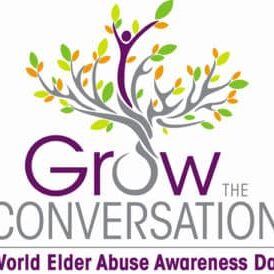We’ve talked on the blog before about the importance of self-care for the caregiver. Today we’re going to focus on why self-care is so important: preventing caregiver burnout and compassion fatigue. What is compassion fatigue?
“Compassion fatigue refers to the phenomenon of perpetual caregivers — whether familial or professional — becoming physically and emotionally depleted by the process of ministering to others.”
Symptoms of compassion fatigue can include isolation, mood swings, apathy, sadness, physical pain, exhaustion, and a higher chance of abusing alcohol or drugs. Left untreated, compassion fatigue can lead to feelings of resentment towards the person you’re caring for. Click here to learn more about symptoms of compassion fatigue.
Coping skills to reduce compassion fatigue:
- Don’t isolate yourself
Your friends listen to you vent, but unless they’re also caregivers, they don’t understand the unique challenges that come with caregiving. Reach out to a caregiver support group in your area. Even online support groups can be helpful! Check the Ahead of the Curve Resource Guide for support groups and other caregiver supports.
2. Create a team
You don’t have to do this alone. Make a list of friends and relatives that have useful skills or that you know you can call when you need a break, or just to vent. Have a friend that loves to cook? Maybe they can prepare some meals that can be frozen and stored in your loved one’s freezer. Someone might surprise you and offer to help. Remember that it’s ok to say yes and accept help. Be sure to check out the Ahead of the Curve Resource Guide for services ranging from chores to meal delivery and more!
3. Find ways to practice gratitude
It can be as simple as thinking about how your caregiving means your loved one can stay in their community longer, or it can be writing in a gratitude journal daily. Find what works for you and stick with it.
4. Take breaks
Have you heard of respite? Respite care is short term care, mostly offered through senior living communities and hospitals. Different respite programs have different durations ranging from hours to weeks, but all offer a chance for the caregiver to take a break. There are plenty of meditating apps that teach you short breathing exercises to deal with stress. Be sure to check the Ahead of the Curve Resource Guide to learn more about local respite programs.
5. Make time for things you enjoy
Don’t neglect yourself. It’s important to make sure you’re getting enough sleep, exercise, and healthy meals, but it’s also important to make sure you’re making time for things you enjoy. What were your hobbies before you became a caregiver? Check the library for free classes to get back into a hobby. Remember, you’re NOT being selfish by doing things you enjoy.
6. Know your limits/boundaries
Caregiving can be an around the clock job. Think about what you need everyday to feel healthy, grounded, and whole. For example, if you know you need to be in bed by 10pm, communicate with your friends and anyone taking care of your loved one that you won’t accept calls after 10 unless it’s an emergency. Doing this isn’t selfish, it’s self-preservation.
7. Don’t take things personally
When we no longer feel in control of our life, we may lash out. This is especially true if the loved one you’re taking care of has a disease like Dementia or Alzheimer’s. it’s hard not to take things personally when someone you care about is yelling, insulting, or saying mean things about you. Try to remember that it’s the frustration or the disease talking, not your loved one. If you have trouble distancing yourself from what’s said, consider seeing a therapist. The Ahead of the Curve Resource Guide lists several counseling programs.
Below is a video of a TED talk outlining self-care for caregivers:
“Love them but love yourself too. Support them but support yourself too”
Visit the Ahead of the Curve Resource Directory for information about services for caregivers.






